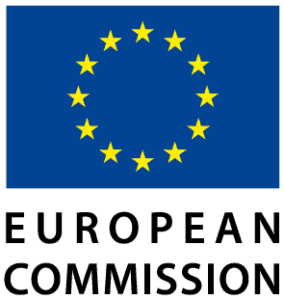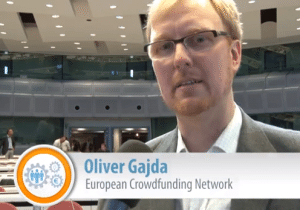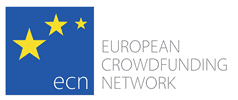 As has been widely expected, the European Commission (EC) will release their comments on March 27th regarding a public consultation on crowdfunding that started in October of 2013 and ended on December 31st. The initiative was to discover the “added value” of potential EU action regarding the innovative form of capital formation.
As has been widely expected, the European Commission (EC) will release their comments on March 27th regarding a public consultation on crowdfunding that started in October of 2013 and ended on December 31st. The initiative was to discover the “added value” of potential EU action regarding the innovative form of capital formation.
Crowdfunding has expanded to varying degrees across the Europe. Most prominently in the UK where government entities regulated the industry almost after the fact. Laws to accommodate the new form of financing a business have sprung up across the continent. While countries like Spain and Italy have experienced a degree of chagrin over regulation viewed as too rigid, there remains hope in other countries such as France which recently announced their probable approach for an economy that has lagged behind other parts of Europe.
Within the Commission there have been proponents advocating the benefits of fostering a more vibrant entrepreneurial ecosystem augmented by crowdfunding. European Commissioner for Digital Agenda Neelie Kroes has spoken in support of crowdfunding and there are others such as European Commissioner for Internal Markets & Services Michel Barnier.
What is crystal clear is the fact that a seamless approach for cross border crowdfunding would benefit every national economy in the European Union. A liberal approach with a regulatory light touch would allow the disruptive innovation to thrive, at times stumble, but grow rapidly. Unfortunately the geo-political realities of the regulatory process within the European Commission may largely preclude this goal.
 The European Crowdfunding Network, a representative group led by Oliver Gajda, has been at the forefront championing pan-European crowdfunding. In recent comments the ECN stated;
The European Crowdfunding Network, a representative group led by Oliver Gajda, has been at the forefront championing pan-European crowdfunding. In recent comments the ECN stated;
The current development in the UK and Spain, where significant hurdles for market entry and customer protection are expected, we may anticipate a reduction in crowdfunding innovation in the worst case. In France, where the proposed regulation so far looks more promising despite some hurdles, we are opportunistic that a more vibrant crowdfunding sector can still develop. In this context arrives the European Commission’s statement providing hope for a significant impact on national regulators and policy makers in order to limit further fragmentation of the single market. This indeed, might be one of the most important signs the European Commission can set right now.
The European Crowdfunding Network has been in the policy mix since 2012. They recently outlined their expectations for the EU Communication and have put together a list their predictions which are quoted below:
Regulation
- Update the laws to allow small and medium businesses the opportunity to raise capital through their own personal networks to ensure their autonomy and job-creating capabilities. (Relevant changes have occurred or are incurring with the input from the European Crowdfunding Network in Austria, Italy, France and the UK)
- Oversee the creation of Expert Groups on Crowdfunding, tasked with the collection and exchange of ideas on how best to support crowdfunding on European, national and regional level.
- The European Commission may consider an Expert Group on Crowdfunding joining multiple Directorates Generals, building on the success around their work on Social Businesses. (This has been formed at the European Commission in Summer 2013)
- Create a business case for crowdfunding in Europe, build awareness for SMEs on how to utilise crowdfunding and create guidance for best practices for crowdfunding platforms, entrepreneurs, and funders (the European Commission has already issued small amounts of grant funding to relevant activities)
- Coordinate and relax the rules in company laws under which entry-level company regimes can offer and assign shares to new investors, thereby abolishing formal procedures that do not fit the information age.
Education
- Provide any type of support to platform managers in view of helping them sustain their activities just like they provide support to any intermediary organizations offering services to entrepreneurs and enterprises.
- Signpost crowdfunding platforms to innovators, entrepreneurs, artists and any project promoters (the European Commission has already issued small amounts of grant funding to relevant activities under its Startup Europe, H2020 and FI PPP programme)
- Raise awareness of potential investors, donors, lenders about the opportunities offered by crowdfunding platforms (the European Commission has already issued small amounts of grant funding to relevant activities)
- Utilise a range of different strategies and approaches to encourage SMEs and entrepreneurs to utilise crowdfunding (the European Commission has already issued small amounts of grant funding to relevant activities under its Startup Europe, H2020 and FI PPP programmes)
Research
- Fund academic and market studies addressing the impact of crowdfunding on the economy (the European Commission has already issued small amounts of grant funding to relevant activities and more are announced)
- Initiate and fund studies on pan-European, national, regional, and local communities; ways SMEs can utilise crowdfunding; the success or otherwise of different policies and techniques that can increase the use of crowdfunding in Europe (the European Commission has already issued small amounts of grant funding to relevant activities)
- Provide resources and funding to a representative body of the European crowdfunding industry (such as the European Crowdfunding Network or a similar organization).
Further Communication
- Continue to raise the awareness of crowdfunding to entrepreneurs, investors, other stakeholders and the general public
- Help the crowdfunding industry in order to create best practices with the aim of self regulation and customer protection
- Intensify support for research to increase available data on the sector and its impact on the European economy
- Take a leading role with national regulators and Governments in order to increase awareness of crowdfunding in order to create public support on national level
- Further the understanding of existing European and national regulation with respect to crowdfunding with the aim to potentially regulate aspects of the sector on European level
With the release due March 27th, along with associated comments from interested industry participants, we will all know soon enough the direction of Europe as guided by the European Commission.
(Editors Note: In a previous version of this article the release date stated as today, March 19th. In correspondence with the EU they have confirmed the documents will be published next week on March 27th)


